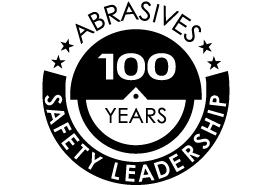- Joined
- Oct 17, 2018
- Messages
- 922
I got a 6" bench grinder on CL to sharpen my lathe bits. Any recommendations for 6" diameter x 3/4" thick, 1" arbor, 36 and 60 grit wheels?
Norton comes up a lot, but the reviews on Amazon seem mixed; 4 and 5 stars but lots of complaints in the same review. Very strange. A local tool supply sells Surf Pro and CGW. Thoughts?
BACKSTORY (Not important, just thought I'd share):
The grinder (a made-in-Taiwan Alltrade from 1987, $35 with a stand!) says it's a 1/2" arbor in the label, but the arbors measure exactly 13mm (0.519"). The wheels that came with it are labeled in metric: 150 x 19 x 13. The adapters that come with many wheels will not work; they are too thin to drill out. I had to buy nylon bushings at HD and drill them out using my lathe and a 13mm drill bit ( I have a German car that is all metric). They fit nice and tight on the arbors. First time using the lathe for something other than practice. Woo hoo!
Norton comes up a lot, but the reviews on Amazon seem mixed; 4 and 5 stars but lots of complaints in the same review. Very strange. A local tool supply sells Surf Pro and CGW. Thoughts?
BACKSTORY (Not important, just thought I'd share):
The grinder (a made-in-Taiwan Alltrade from 1987, $35 with a stand!) says it's a 1/2" arbor in the label, but the arbors measure exactly 13mm (0.519"). The wheels that came with it are labeled in metric: 150 x 19 x 13. The adapters that come with many wheels will not work; they are too thin to drill out. I had to buy nylon bushings at HD and drill them out using my lathe and a 13mm drill bit ( I have a German car that is all metric). They fit nice and tight on the arbors. First time using the lathe for something other than practice. Woo hoo!


